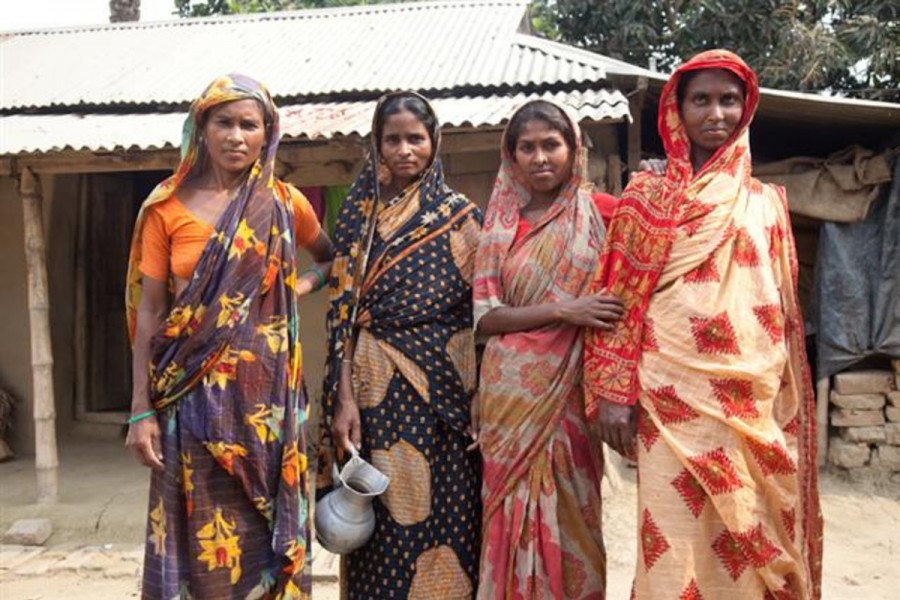
Published :
Updated :

Women in Bangladesh's producer households were found to be more empowered than those in entrepreneur or wage-work households, according to a study of the International Food Policy Research Institute (IFPRI).
As working away from home is less socially desirable, women entrepreneurs and wage workers may be more susceptible to losing the respect of community members, the study noted.
The IFPRI piloted the study - Women's Empowerment in Agriculture Index for Value Chains (WEAI4VC) - in Bangladesh and the Philippines as part of preparing its food policy report. The report - '2020 Global food policy report: Building inclusive food systems' - has been published recently.
According to the report, study on Bangladesh examined whether empowerment differs depending on the role that women play in the value chain.
"In Bangladesh, women participate in value chains by providing household labour, for which they are not individually compensated," the report said.
In contrast to the Philippines, Bangladeshi women do not typically maintain control over the income generated by their work, and their heavy workload is a major contributor to making them less empowered.
"Overall levels of empowerment were found to be lower for both men and women in Bangladesh compared with the Philippines," the report added.
Women in Bangladesh are less empowered than men, and women's empowerment varies greatly with livelihood activities, while men's empowerment is relatively similar across livelihood activities.
Compared to women in producer households, women in entrepreneur and wage-work households have little say in productive decisions.
The IFPRI publication, in a chapter on transforming food systems for women empowerment and equity, suggested increasing women's decision-making power and control over resources and assets (such as credit, land, training, transport, and technology) within households and communities.
It also called for moves to ensure that food system transformations do not disempower women by increasing workloads or reducing decision-making power, but rather create a virtuous cycle of inclusion and empowerment to benefit women and men.
saif.febd@gmail.com


 For all latest news, follow The Financial Express Google News channel.
For all latest news, follow The Financial Express Google News channel.